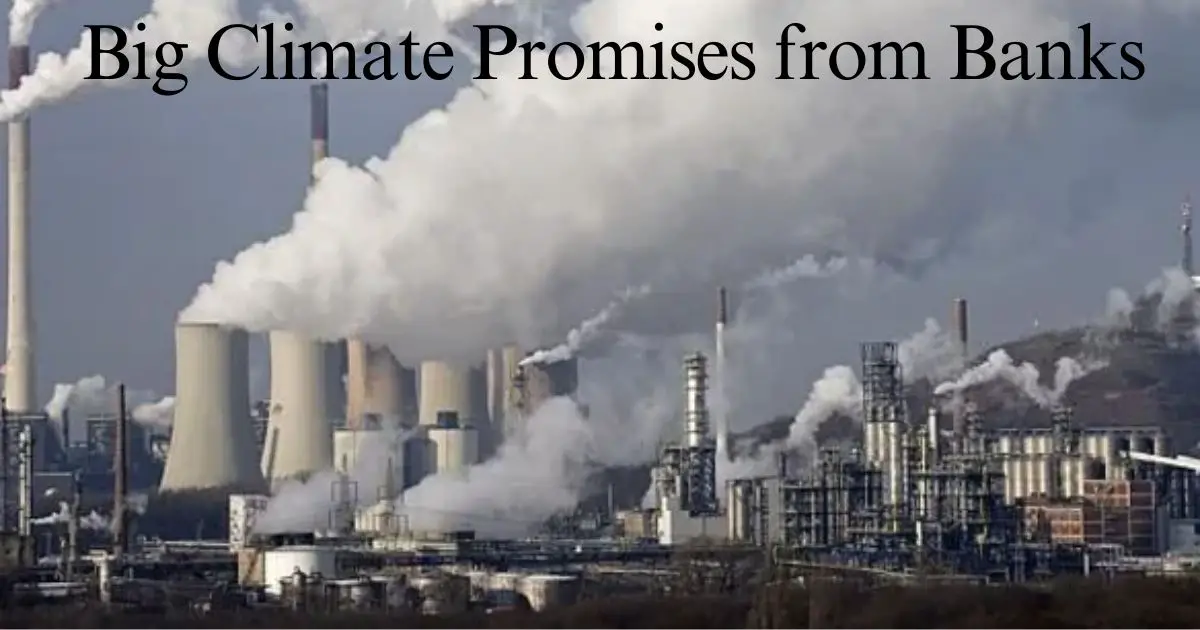Last year, a steel plant in Germany. At the 2021 COP26 climate conference, banks made a commitment to use their lending resources to support national efforts to reduce greenhouse gas emissions. Give credit…Gallup, Sean/Getty Images
An annual event often attended by activists and legislators, the United Nations climate meeting in Glasgow two and a half years ago was graced by bankers and investors. The finance industry’s decision to commit significant resources to combating climate change was hailed as a historic moment.
In launching the Glasgow Financial Alliance for Net Zero, hundreds of banks, insurers, and asset managers pledged to invest $130 trillion in cutting carbon emissions and funding the energy transition. However, a recent study disregarded the efficacy of those assurances and was released by the European Central Bank.
After analyzing lending by European banks that had joined the Net-Zero Banking Alliance, the banking group of the Glasgow initiative, economists from the central bank, the Massachusetts Institute of Technology, and Columbia Business School wrote, “Our results cast doubt on the efficacy of voluntary climate commitments for reducing financed emissions, whether through divestment or engagement.”
The researchers discovered that, since 2018, the banks had cut their lending by 20% to industries like transportation and oil and gas that they had targeted in their climate targets. While that may seem like progress, the researchers contended that it was insufficient because banks that had not made the same commitment saw a similar reduction.
One of the paper’s authors, Parinitha Sastry, an assistant professor of finance at Columbia Business School, stated, “It’s not OK for the net-zero bank to act exactly like the non-net-zero bank, because we need that to scale up financing.” “We’re hoping for a change in behavior.”
Politicians and climate campaigners have high expectations for banks. The International Energy Agency estimates that if global carbon emissions are to be zero by 2050, trillions of dollars will need to be invested annually in renewable energy. The majority of those expenses will require private financing, and banks play a crucial role as middlemen in those transactions.
Several banks pushed for net-zero commitments during the Glasgow summit, also known as COP26. However, because of growing political pressure, the need for inexpensive energy, and shifting geopolitical alignments, climate campaigners are worried that banks’ commitments to reduce emissions may be eroding as pressure to reduce emissions increases.
The European Central Bank provided the researchers with lending data from over 300 European banks. Roughly ten percent of them were Net-Zero Banking Alliance members. Particularly outside the eurozone, they tended to be bigger and lend more to high-carbon industries like mining.
The economists discovered that neither the banks in the alliance nor the businesses who benefited from the loans altered the interest rates on loans to enterprises with high emissions or increased their likelihood of setting decarbonization targets. Regardless of the tools at their disposal to lower emissions—such as investing more in green initiatives, cutting investments in high-emitting companies, and encouraging businesses to reduce their own emissions—all banks, in fact, behaved in the same way, according to Ms. Sastry.
Based on the facts available, it is difficult to conclude that banks’ conduct is changing as a result of the net-zero pledges, the speaker stated.
The United Nations-backed Net-Zero Banking Alliance is one of the most stringent voluntary climate groups that banks may join. Members have pledged to publish their emissions data on an annual basis and have committed to setting emissions objectives for 2030 with intermediate targets for 2050.
The alliance responded to the report by stating that it was premature to assess their efficacy. Members have only recently started to submit progress reports and transition plans, according to a statement from the alliance’s secretariat lead, Sarah Kemmitt.
However, others feel that the groupings are not strict enough.
German bank GLS left the Net-Zero Banking Alliance last year as a founding member, citing reports from European nonprofits that the alliance’s biggest banks have invested $270 billion in fossil fuel expansions since its establishment.
“Is it really wise to be in such an alliance?” questioned GLS spokesperson Antje Tönnis. It takes a good deal of labor, too. While reporting is involved, there are no repercussions.
Triodos Bank, a founding member from the Netherlands, expressed its desire to fortify the pledges.
The bank’s chief commercial officer, Jacco Minnaar, stated in a statement that the alliance’s “updated guidelines are not strict enough and provide banks with too much leeway.” He did admit, though, that they had become better. He declared, “We are confident that within this global commitment, we will have the greatest impact.”

